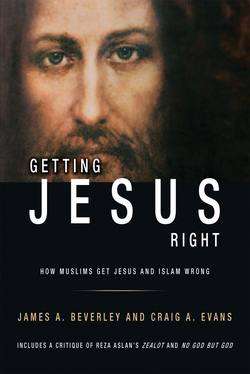Читать книгу Getting Jesus Right: How Muslims Get Jesus and Islam Wrong - James A Beverley - Страница 17
На сайте Литреса книга снята с продажи.
How Well Established Is the Arabic Text of the Qur’an?
ОглавлениеIn a later chapter we shall discuss significant discrepancies in Qur’anic manuscripts. But it will be helpful at this point to say something about textual study of the Qur’an, to see how it compares to New Testament textual criticism. The first thing we observe is that Qur’anic textual criticism is only in its infancy. Qur’anic textual critic Keith Small informs us,
It is widely acknowledged that there has never been a critical text produced for the Qur’an based on extant manuscripts, as has been done with other sacred books and bodies of ancient literature. The current printed texts of the Qur’an are based on medieval Islamic tradition instead of collation and analysis of extant manuscripts. In other literary disciplines it is almost taken for granted that scholarly study of a text must start with a text based on the collation and analysis of the oldest and best manuscripts available for that text. Qur’anic studies operates with an open knowledge of this lack concerning the Qur’an, and as such methods and their results have had to be adapted to this fundamental deficiency.4
What Small has said here will come, we suspect, as a surprise to Christians and Muslims alike. We have had Muslims say to us that because the Qur’an is inspired it is without errors or textual variants (“unlike the Christian Bible,” it is often implied!). Small adds, “There is a widespread and long held belief among Muslims that the text of the Bible was corrupted so much that a new revelation, the Qur’an, had to be sent” and “the text of the Qur’an has been preserved perfectly.”5 But this is plainly not true. We have read Small’s studies, and the Qur’anic textual variants are plain to see. There seems to be a wide gap between Qur’anic textual reality and popular Muslim beliefs. Indeed, according to Qur’anic scholar Efim Rezvan,
It is today evident that the real history of the fixation of the Qur’anic text attested in early manuscripts differs in extremely serious fashion from the history preserved in the Muslim tradition. Only an analysis of manuscripts will allow us to reconstruct the true history of the canon’s establishment.6
Most Muslims know nothing of what Rezvan is saying. Muslim scholars usually maintain publicly the fiction that there are few variants and they are only minor and unintentional.7 He and a number of Qur’anic scholars know full well that variants exist among the manuscripts of the Qur’an, despite the attempt in the seventh century to destroy all variant manuscripts. In the last fifty years, a number of projects have attempted to put the Qur’anic text on a firmer footing, but for one reason or another these projects have not been brought to completion. Sometimes the reason is resistance, motivated by religious ideology, perhaps out of fear that serious problems with the text will come to light.8
For his part, Keith Small is optimistic that by diligent study of Qur’anic manuscripts, through collation and comparison (as is done in New Testament scholarship), a critical text that closely approximates the original, or at least one of the early forms of the text, can be achieved. He states,
The methods of textual criticism which have been developed over the last three centuries for sacred texts, the Greek and Latin classics, and other ancient literary traditions have proven that they can substantiate the historical authenticity of ancient texts, as well as document stages and changes in textual transmission of these bodies of literature. As a rule, manuscripts of the Qur’an have not been submitted to this kind of study.9
When it comes to textual criticism, New Testament scholarship is miles ahead of Qur’anic scholarship.10 Christian scholars who have plunged into the world of manuscripts have openly acknowledged the presence of variants and, in places, uncertainties. The result has been the restoration of the text that closely approximates the original. The work is ongoing and optimistic.
Qur’anic scholars face a much greater challenge, for the formation of the Qur’an was nothing like that of the individual books of the New Testament. The New Testament books were written as discrete literary units by one author and then distributed and copied. The Qur’an did not come about this way. Muhammad did not write it. He may have dictated portions of it. Some of his followers may have written portions of it during Muhammad’s lifetime. Others had memorized it. But exactly how the Qur’an as a whole came together in the aftermath of Muhammad’s death is not clear. The manuscript evidence suggests “it cannot be demonstrated that there was one version going back to Muhammad” and that “there never was one original text of the Qur’an.”11 Notwithstanding the nature of the evidence, the belief in such a text is “a mainstay of popular Islamic discourse.”12 It is akin to Christian fundamentalists who think the Textus Receptus, which underlies the King James Version, goes back to the apostles.
